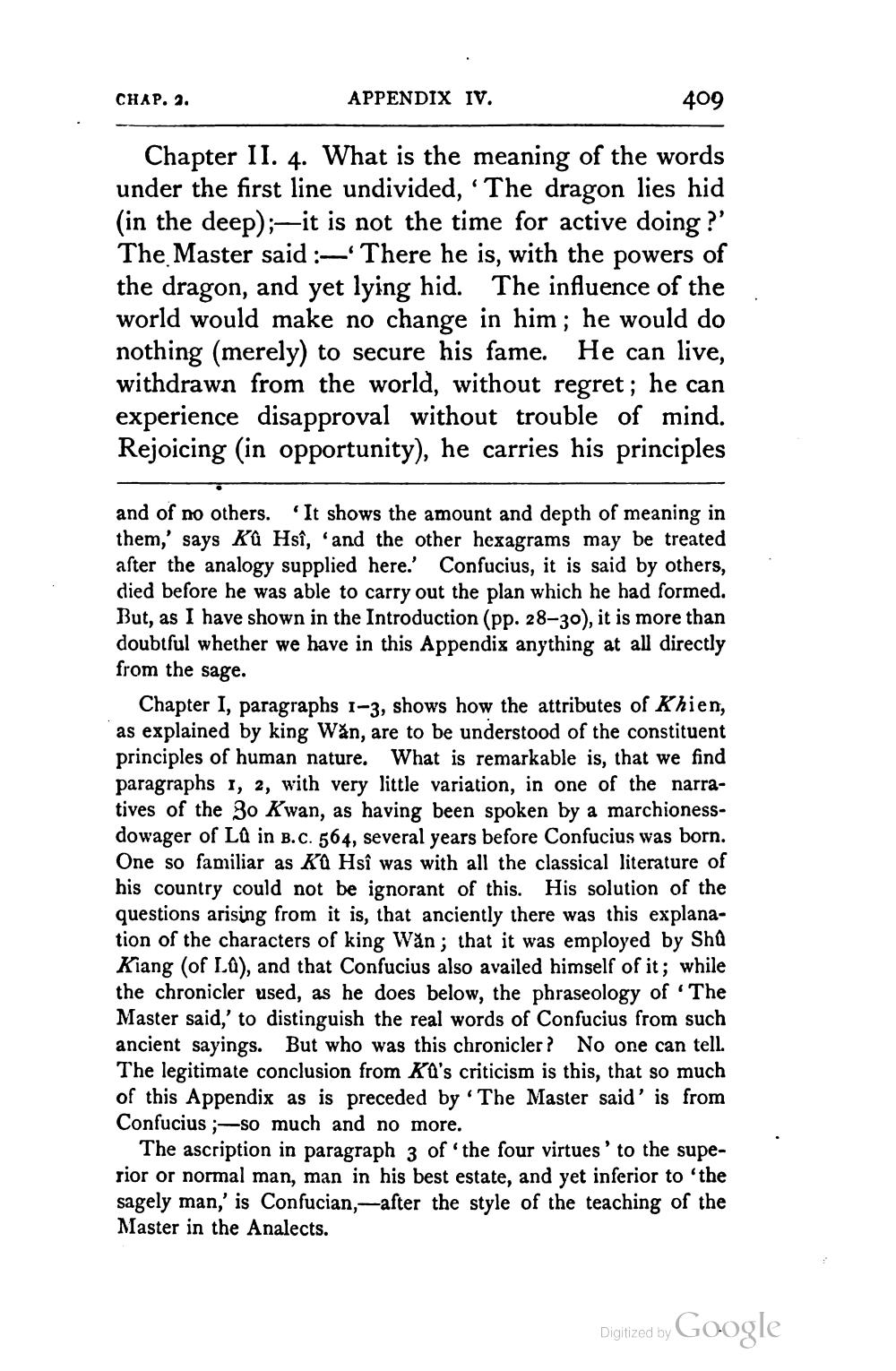________________
CHAP. 2.
APPENDIX IV.
409
Chapter II. 4. What is the meaning of the words under the first line undivided, 'The dragon lies hid (in the deep);—it is not the time for active doing ?' The Master said :--There he is, with the powers of the dragon, and yet lying hid. The influence of the world would make no change in him; he would do nothing (merely) to secure his fame. He can live, withdrawn from the world, without regret; he can experience disapproval without trouble of mind. Rejoicing (in opportunity), he carries his principles
and of no others. It shows the amount and depth of meaning in them,' says Kû Hsî, 'and the other hexagrams may be treated after the analogy supplied here.' Confucius, it is said by others died before he was able to carry out the plan which he had formed. But, as I have shown in the Introduction (pp. 28-30), it is more than doubtful whether we have in this Appendix anything at all directly from the sage.
Chapter I, paragraphs 1-3, shows how the attributes of Khien, as explained by king Wăn, are to be understood of the constituent principles of human nature. What is remarkable is, that we find paragraphs 1, 2, with very little variation, in one of the narratives of the 30 K'wan, as having been spoken by a marchionessdowager of La in B.C. 564, several years before Confucius was born. One so familiar as Ka Hsî was with all the classical literature of his country could not be ignorant of this. His solution of the questions arising from it is, that anciently there was this explanation of the characters of king Wăn; that it was employed by Shû Kiang (of La), and that Confucius also availed himself of it; while the chronicler used, as he does below, the phraseology of The Master said,' to distinguish the real words of Confucius from such ancient sayings. But who was this chronicler? No one can tell. The legitimate conclusion from Ka's criticism is this, that so much of this Appendix as is preceded by The Master said' is from Confucius ;-So much and no more.
The ascription in paragraph 3 of the four virtues' to the superior or normal man, man in his best estate, and yet inferior to the sagely man,' is Confucian,-after the style of the teaching of the Master in the Analects.
Digitized by Google




